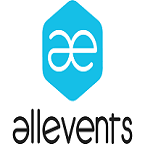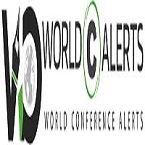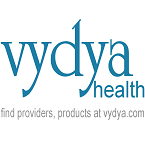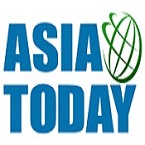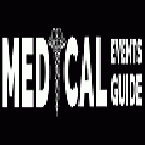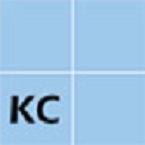About Conference
Nursing Care Conference 2026, officially known as the 36th World Nursing and Nursing Care Congress, will be held on March 17-18, 2026, in Paris, France. Guided by the inspiring theme “Nursing Leadership for a Changing World: Caring, Collaborating, Creating Solutions,” this global event will unite nurses, healthcare professionals, researchers, educators, and shape the future of nursing and healthcare worldwide.
The congress will feature keynote sessions, interactive panels, workshops, and oral and poster presentations covering diverse topics such as nursing education, clinical nursing, patient-centered care, nursing leadership, healthcare technology, evidence-based practice, nursing informatics, advanced nursing roles, and global health challenges. We invite professionals, researchers, and students to submit their abstracts and showcase their work to an international audience.
Join us in Paris for this extraordinary event, where knowledge, innovation, and passion for nursing will converge to empower nurses, enhance patient care, and advance global healthcare. Together, we can create a healthier future for all.
Why to attend:
The aim of this event is to provide a platform where ideas and innovations in nursing can be shared across the global community. This year, we have brought together leading nursing experts from around the world, each selected for their outstanding contributions to advancing nursing practice, education, and patient care. The program has been carefully designed to meet the diverse needs of registrants and stakeholders, ranging from clinical nurses to healthcare leaders. We are excited to foster meaningful engagement through panel discussions, interactive workshops, and lectures with Q&A. Our goal is to create numerous opportunities for attendees to engage in valuable conversations, connect with peers, and expand their professional networks, forging lasting collaborations that will shape the future of nursing worldwide.
Target Audience
-
Nurse practitioners
-
Nursing educators
-
Nursing researchers
-
Healthcare leaders
-
Health technology professionals
-
Clinical practitioners
-
Nursing students
-
Advanced degree students
-
Medical professionals
-
Allied health professionals
-
Medical educators
-
Healthcare innovators
-
Nursing assistants
-
Patient care coordinators
-
Healthcare providers
-
Nursing managers
-
Healthcare educators
-
Public health experts
Sessions and Tracks
Track-1: Nursing Leadership and Management:
Leadership plays a crucial role in shaping healthcare systems, and nurses are often at the forefront of organizational change. This session will explore strategies for effective nursing leadership, focusing on fostering strong leadership skills, managing nursing teams, improving healthcare delivery, and promoting a culture of safety. Discussions will also cover the importance of leadership in times of crisis, such as during the COVID-19 pandemic. Attendees will gain valuable insights into the latest leadership models, how to improve team communication, and how to implement evidence-based practices at the leadership level. Participants will also learn how to navigate organizational challenges, advocate for policy changes, and enhance nurse empowerment.
Track-2: Innovations in Nursing Education
The landscape of nursing education is rapidly evolving, with technological advancements and new methodologies reshaping how future nurses are trained. This session will explore innovations in nursing education, including simulation-based learning, e-learning, and competency-based assessments. Topics will cover how to integrate technology into nursing curricula, strategies for teaching clinical skills, and the benefits of interdisciplinary education. Attendees will also discuss the role of mentorship and hands-on experience in nursing education. The session will highlight successful case studies from educational institutions around the world and provide actionable strategies for improving nursing education at all levels.
Track-3: Patient-Centered Care: The Heart of Nursing
Patient-centered care is a fundamental principle of nursing practice. This session will focus on how nurses can design and implement care plans that prioritize patients’ values, preferences, and needs. It will cover the importance of communication skills, empathy, and shared decision-making in building trust with patients. Attendees will also discuss strategies for involving families in care and ways to overcome barriers to providing personalized care in complex healthcare environments. By the end of the session, participants will have a deeper understanding of how to implement patient-centered approaches in a variety of healthcare settings, from hospitals to community clinics.
Track-4: Nursing Research and Evidence-Based Practice
Nursing research plays a critical role in improving patient outcomes and advancing healthcare. This session will examine the role of evidence-based practice (EBP) in nursing and how research can guide clinical decisions. Attendees will explore how to conduct systematic reviews, implement research findings in clinical settings, and assess the impact of research on patient care. Key topics will include developing research questions, applying research methods, and overcoming common barriers to integrating research into practice. Participants will also learn how to use data to improve quality of care, enhance patient safety, and ensure the effectiveness of nursing interventions.
Track-5: The Future of Nursing: Technology and Innovation
As technology continues to shape healthcare, nurses are increasingly at the forefront of integrating innovative tools and practices into patient care. This session will explore how digital health tools, such as telemedicine, wearable devices, and electronic health records, are transforming nursing practice. Attendees will discuss the challenges and opportunities these technologies present, particularly in enhancing patient outcomes and improving efficiency. Topics will also include data analytics in nursing, mobile health applications, and the role of artificial intelligence in healthcare. Participants will leave the session with a comprehensive understanding of how technology is shaping the future of nursing practice and healthcare delivery.
Track-6: Mental Health Nursing: Challenges and Opportunities
Mental health is a crucial aspect of overall health, and nurses play a pivotal role in providing care for individuals experiencing mental health issues. This session will focus on the challenges and opportunities in mental health nursing, addressing topics such as assessment and diagnosis, therapeutic interventions, and the integration of mental health care into primary healthcare settings. Attendees will explore evidence-based strategies for managing common mental health disorders, including depression, anxiety, and schizophrenia, as well as emerging trends in the field, such as the use of digital mental health tools. The session will also discuss stigma, ethical dilemmas, and the importance of self-care for mental health nurses.
Track-7: Global Health Challenges and the Role of Nursing
In today’s interconnected world, nurses are essential to addressing global health challenges such as pandemics, infectious diseases, and chronic health conditions. This session will explore the role of nurses in responding to global health crises, such as the COVID-19 pandemic, and how nursing teams collaborate internationally to tackle health issues. Topics will include global health policy, the role of nursing in disaster response, and the importance of cultural competence in delivering care across different countries. Attendees will also discuss the impact of climate change on health and the role nurses play in promoting global health equity.
Track-8: Nursing in Palliative and End-of-Life Care
Palliative and end-of-life care are vital areas in nursing practice, focusing on providing comfort and dignity to patients nearing the end of their lives. This session will cover best practices for managing symptoms, addressing psychosocial needs, and supporting families during the end-of-life process. Attendees will discuss pain management, ethical considerations, and the role of interdisciplinary teams in palliative care. The session will also explore how nurses can advocate for patients’ wishes and ensure that care aligns with the values and preferences of the individual. Participants will leave with actionable insights into improving the quality of palliative and end-of-life care.
Track-9: Nursing in Emergency and Critical Care
Nurses working in emergency and critical care settings face high-pressure situations where rapid decision-making and clinical expertise are crucial. This session will explore the specific challenges of nursing in these high-stakes environments, from managing acute medical conditions to providing support during traumatic events. Attendees will learn about the latest protocols and best practices for critical care nursing, as well as how to work effectively in multidisciplinary teams. Topics will also cover disaster response, triage systems, and strategies for managing patients in urgent situations. The session will provide valuable insights for improving care delivery in emergency and critical care nursing.
Track-10: Nursing and Public Health: Addressing Community Needs
Nurses play a critical role in public health, focusing on preventing illness and promoting health within communities. This session will examine how nursing practice intersects with public health initiatives, addressing topics such as vaccination, health education, and disease prevention. Attendees will explore how nurses can engage with communities to address health disparities and improve population health outcomes. The session will also discuss the role of nurses in managing public health crises, such as infectious disease outbreaks, and the importance of collaboration with local health organizations and governments. Participants will learn strategies for impacting public health at the community level.
Track-11: Pediatric Nursing: Caring for the Next Generation
Pediatric nursing is a specialized field that requires a deep understanding of child development and the unique needs of young patients. This session will focus on best practices in pediatric nursing, including approaches to pain management, developmentally appropriate care, and communicating with children and their families. Attendees will explore how to manage common pediatric health conditions, such as asthma, diabetes, and infections, as well as the challenges of caring for children with complex or chronic conditions. The session will also emphasize the importance of promoting health and preventing illness in children, with a focus on family-centered care.
Track-12: Geriatric Nursing: Providing Care for Older Adults
As the global population ages, the demand for geriatric nursing expertise is growing. This session will focus on the specialized care needs of older adults, including managing chronic conditions, improving quality of life, and addressing the challenges of aging. Topics will include dementia care, palliative care, medication management, and the importance of preventing falls and injuries. Attendees will also explore the psychological aspects of aging, including depression and cognitive decline, and learn strategies for providing compassionate, person-centered care for the elderly. This session will provide valuable tools for improving outcomes in geriatric nursing.
Track-13: Nursing Ethics and Legal Issues
Nurses often face ethical dilemmas and legal challenges in their practice. This session will explore common ethical and legal issues in nursing, such as patient autonomy, confidentiality, and informed consent. Attendees will discuss how to navigate ethical conflicts and provide care that aligns with both legal and ethical standards. Topics will include the nurse’s role in advocating for patients’ rights, maintaining professional boundaries, and handling situations involving end-of-life care and resource allocation. The session will provide attendees with practical tools for making sound ethical decisions and understanding their legal responsibilities as healthcare providers.
Track-14: The Role of Nursing in Infection Control
Infection control is critical to ensuring patient safety and preventing the spread of diseases within healthcare settings. This session will focus on the best practices for infection control, including proper hand hygiene, sterilization techniques, and isolation protocols. Attendees will discuss strategies for managing outbreaks of infectious diseases, such as COVID-19, and learn about the role of nurses in monitoring and controlling infections. The session will also address the challenges of antimicrobial resistance and the importance of promoting vaccination and preventive care to reduce the risk of infections. Participants will leave with a deeper understanding of infection control protocols and their role in safeguarding patient health.
Track-15: The Impact of Nursing on Healthcare Policy
Nurses play an important role in shaping healthcare policy at local, national, and global levels. This session will explore how nursing professionals can influence healthcare policy and advocacy efforts to improve patient care, access to healthcare, and workforce development. Attendees will learn about the impact of policy decisions on nursing practice and healthcare delivery, and discuss strategies for becoming effective advocates for change. The session will also highlight successful case studies where nursing organizations have led policy reforms and improved healthcare systems. Participants will leave with tools and resources to engage in healthcare policy efforts.
Track-16: Nursing Informatics and Technology
The use of technology in healthcare is rapidly expanding, and nurses are integral to the adoption and application of healthcare technologies. This session will explore the field of nursing informatics, focusing on how nurses can leverage electronic health records, telemedicine, and data analytics to improve patient outcomes. Attendees will learn about the latest trends in healthcare technology and the role of nursing in managing data to improve clinical decision-making. Topics will include the use of mobile health applications, wearable devices, and electronic prescribing systems. This session will equip nurses with the knowledge to use technology effectively in their practice.
Participant Options & Benefits
The Nursing Care Conference-2026 offers a range of participant options and benefits designed to enhance your conference experience and maximize your professional development. Participants can choose from the following options:
-
Presenter Registration:
-
Opportunity to present your research findings through oral or poster presentations.
-
Receive valuable feedback from peers and experts in the nursing and healthcare field.
-
Publication opportunities in conference proceedings or affiliated journals.
-
Delegate Registration:
-
Access to all scientific sessions, keynote lectures, and workshops.
-
Networking opportunities with fellow professionals, experts, and thought leaders.
-
Conference materials, including abstract books and program schedules.
-
Student Registration:
-
Special rates for students currently enrolled in academic programs.
-
Access to educational sessions and networking opportunities.
-
Opportunity to showcase research projects through poster presentations.
-
Industry Registration:
-
Exhibition space to showcase products, services, and innovations in the healthcare sector.
-
Networking opportunities with key opinion leaders and professionals in the nursing and healthcare field.
-
Brand visibility among a targeted audience of healthcare professionals.
-
Virtual Attendance:
-
Access to live-streamed sessions and on-demand recordings.
-
Participation in interactive sessions and virtual networking events.
-
Flexibility to attend sessions from anywhere in the world.
Benefits for Participants:
-
Stay updated on the latest advancements and research findings in nursing and healthcare.
-
Expand your professional network and connect with peers, researchers, and experts in the field.
-
Enhance your knowledge and skills through interactive workshops, sessions, and lectures.
-
Explore career opportunities, collaborations, and partnerships in the nursing and healthcare sectors.
-
Earn continuing education credits (CME/CPD) to enhance your professional credentials.
Join us at the Nursing Care Conference-2026, whether you are a researcher, clinician, student, or industry professional. This event provides a valuable opportunity to learn, network, and collaborate with experts in the field. Register today and be a part of this exciting event in Paris, France!
Abstract Review Process
Abstract Review Process for the Nursing Care Conference-2026
Submission and Initial Review:
-
Submit your abstract through the official conference submission portal.
-
The organizing committee will review all submitted abstracts based on relevance to the conference theme, originality, and scientific quality.
Acceptance and Notification:
-
Once the review is completed, you will receive an Abstract Acceptance Letter if your submission is accepted.
-
Accepted abstracts will require the presenting author to register for the conference.
Registration Requirements:
-
A single registration permits only one person to attend the conference.
-
If you have co-authors who wish to attend, they need to register and pay independently.
-
Co-authors will receive a 15% discount on the Non-Presenter’s (Listener’s) Registration Fee.
Certification:
-
Certificates will be issued to co-authors only upon their registration and payment for the conference.
Discount and Communication:
-
To avail of the co-author discount, make sure to communicate with the organizing committee prior to registration.
Important Information for Co-Authors:
-
Each co-author attending the conference must register and pay the registration fee independently.
-
Co-authors are eligible for a 15% discount on the Non-Presenter’s (Listener’s) Registration Fee.
-
Ensure prior communication with the organizing committee to facilitate the discount.
-
Certificates will be provided to registered co-authors.
For further information or assistance, please contact the organizing committee.
Visa Process
Visa Process for the Nursing Care Conference-2026
Planning to attend the Nursing Care Conference-2026 in Paris, France, March 17-18, 2026? Here's a comprehensive guide to help you navigate the visa process smoothly.
Step-by-Step Guide to the Visa Application Process
Step 1: Registration
-
Complete your registration for the Nursing Care Conference-2026. Once your registration is confirmed, you will receive an official invitation letter. This letter is essential for supporting your visa application.
Step 2: Determine the Type of Visa
-
Most international delegates will require a short-stay Schengen visa for France. This visa permits stays of up to 90 days within a 180-day period for tourism, business, or attending conferences.
Step 3: Gather Required Documents
-
Prepare the necessary documentation for your visa application. Typical requirements include:
-
A valid passport (with at least three months validity beyond your intended departure date).
-
Completed visa application form.
-
Official invitation letter from the Nursing Care Conference-2026.
-
Travel itinerary (flight reservations).
-
Proof of sufficient financial means (bank statements, proof of income).
-
Travel insurance covering medical expenses and repatriation for the entire duration of your stay.
Step 4: Schedule a Visa Appointment
-
Contact the French consulate or embassy in your country to schedule an appointment for your visa application submission. Be sure to book this appointment well in advance, as appointment slots can fill up quickly, especially during peak travel seasons.
Step 5: Attend the Visa Interview
-
On the day of your appointment, arrive at the consulate or embassy with all required documents. During the interview, you may be asked about the purpose of your visit, your plans during your stay, and your ties to your home country to ensure that you intend to return after the congress.
Step 6: Wait for Visa Approval
-
After your interview, the processing time for a Schengen visa typically ranges from 10 to 15 days. It is advisable to apply at least one month before your planned departure to allow sufficient time for processing.
Step 7: Collect Your Visa
-
Once your visa is approved, you will be notified to collect your passport with the visa sticker affixed. Double-check the visa details for accuracy and familiarize yourself with any specific entry requirements.
Additional Tips:
-
Early Preparation: Start your visa application process as early as possible to avoid any last-minute issues.
-
Accurate Documentation: Ensure all documents are complete and accurate to prevent delays in processing.
-
Travel Insurance: Make sure your travel insurance policy meets Schengen requirements, including coverage for medical emergencies and repatriation.
By following these steps, you can ensure a smooth and hassle-free visa application process. Register now and prepare to join us in Paris, France for an inspiring and informative gathering of minds at the Nursing Care Conference-2026!
We look forward to welcoming you to Paris, France!
Market Analysis
As indicated by current healthcare trends, nursing and healthcare-related diseases continue to rise globally, with an alarming increase in chronic health issues, particularly in developed and developing nations. Nursing care plays a pivotal role in combating these challenges, but the demand for specialized training and innovative care methods is at an all-time high. In France, over 1 million people are at risk of developing chronic health conditions that require ongoing nursing interventions. By 2030, the demand for specialized nursing care is expected to rise significantly, placing even greater pressure on healthcare systems.
Recent studies have shown that nursing workforce shortages are a critical issue in Europe, with more than 200,000 nursing vacancies expected by 2030. This highlights the urgent need for educational programs, policy changes, and investment in nursing workforce development. Moreover, healthcare expenditures related to nursing care are increasing annually, with healthcare systems across the globe investing billions to address the growing burden.
In France, nursing care expenditure continues to rise, with hospitals and healthcare organizations dedicating more resources to training nursing professionals and adopting new technologies. This trend underlines the importance of specialized conferences where professionals can share insights, explore innovations, and collaborate on solutions for the evolving healthcare challenges.
1. Global Growth in Nursing and Healthcare
-
The global healthcare industry has been growing at a rapid pace, driven by an aging population, advances in healthcare technology, and increasing demand for healthcare services.
-
The global nursing workforce has been expanding to meet these demands, with many countries focusing on upskilling their nursing staff to adapt to the changing needs of the healthcare system.
2. Demand for Nursing Education and Training
-
With the increasing complexity of healthcare, there is a rising demand for nursing education, conferences, and workshops.
-
Nursing care conferences, such as yours, are critical for providing updated knowledge, skills, and networking opportunities to professionals in the nursing field.
4. Regional Growth and Conference Attendees
-
Europe, North America, and Asia are the key regions that contribute to the growth of nursing conferences. In particular, the European market for healthcare and nursing-related events is expected to grow steadily over the next decade.
Key Trends to Monitor:
-
Increase in Nurse Shortages: Global shortages in nursing staff will drive demand for more educational events.
-
Growth in Online Learning: With the rise of virtual platforms, offering remote access will increase participation.
-
Emphasis on Specialized Nursing Roles: Conferences focusing on specialized areas of nursing (e.g., geriatric care, palliative care, etc.) are in high demand.












